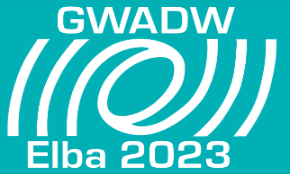Speaker
Description
The next generation of gravitational wave detectors, such as the Einstein Telescope, face a significant limitation known as Newtonian Noise. This noise source arises from seismic waves that cause gravitational acceleration of the suspended test masses in the detector, interfering with the measurement of gravitational waves. One strategy to eliminate Newtonian Noise requires seismic field measurements using large sensor arrays, the estimation of the test mass acceleration perturbation, and the correction of the gravitational wave data in post-processing. The need for a huge number of seismic sensors leads to practical challenges and high costs. Distributed fiber strain sensors have the potential to overcome these as they provide individual seismic measurement points over the entire length of the fiber. Our research in Hamburg, in collaboration with the WAVE initiative on the research campus Bahrenfeld/DESY, is focused on investigating large seismic sensor networks and the use of fiber sensors. In this talk, we will present results from the WAVE seismic network including measurements in accelerator tunnels (EuXFEL) and discuss the benefits of fiber sensors. Additionally, we will outline our plans to develop improved seismic fiber sensors using digitally enhanced interferometry to meet the demanding requirements of the Einstein Telescope.

